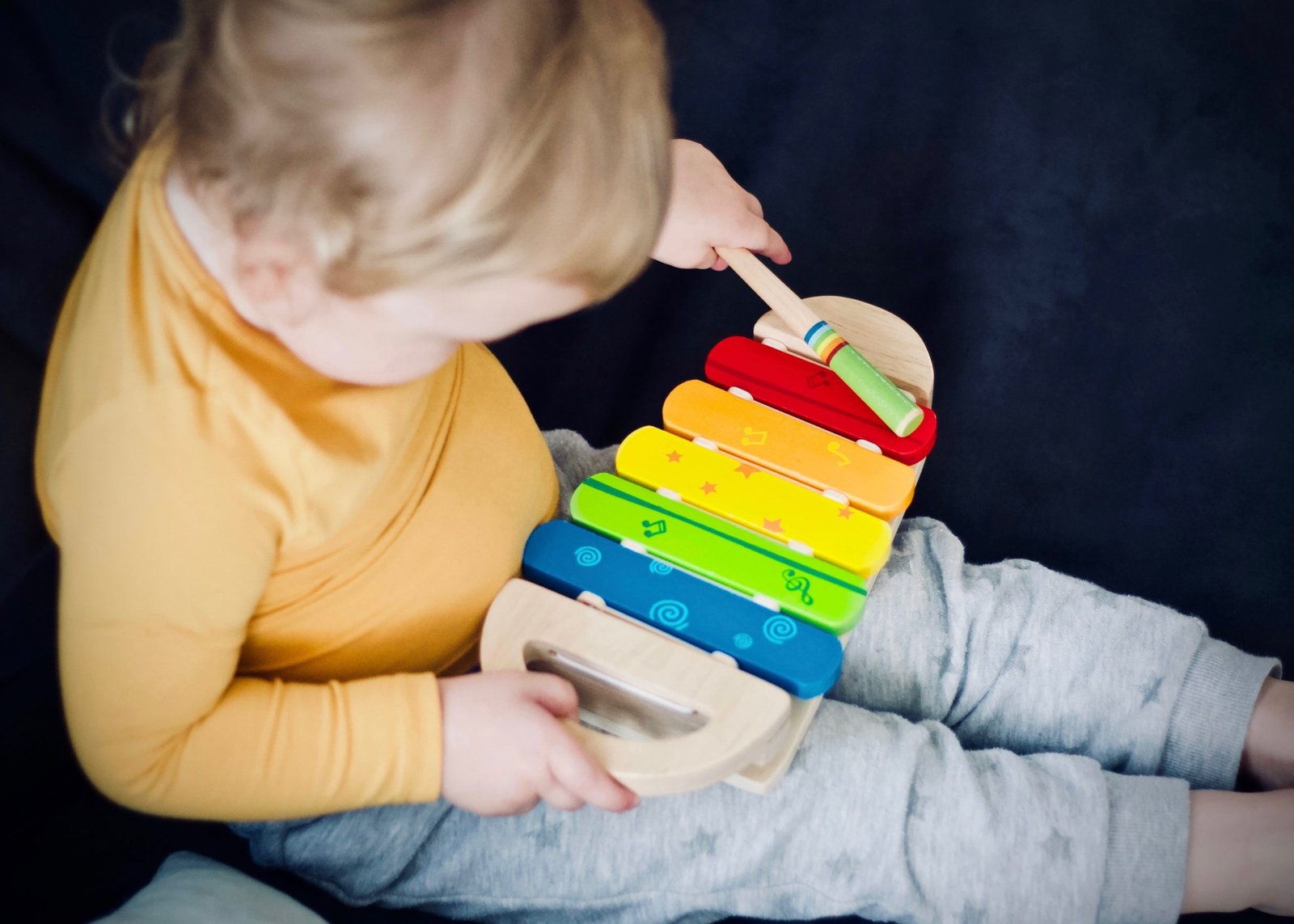Music Therapy

Accompaniment with children's music therapy
From a very young age, I knew there was something special about music. It wasn't just something I liked… it was something that kept me company. It calmed me, helped me express myself, and connected me with others. Over time, I discovered that all of this had a name: children's music therapy.
Today, I work with children and families using this powerful tool. Through music, we find a shared space, free from judgment, where each child can express themselves in their own way and be embraced as they are.

What is children's music therapy?
The children's music therapy It is a therapeutic discipline that uses musical elements—sound, rhythm, melody, harmony—to accompany children's development at different levels: emotional, cognitive, motor, and social.
The best thing about this approach is that you don't need to "know music." It's not about playing an instrument well, but rather letting yourself go, expressing yourself, and connecting. I work with a focus on listening and respect, adapting each session to the needs of the child and their family.
What is a children's music therapy session like?
Each session is different because each child has their own rhythm. Sometimes we sing, sometimes we move, sometimes we just listen to a soft melody. The important thing is that the child feels comfortable, supported, and confident.
There are some very magical moments. I remember a little one who didn't speak, but started humming with me after several sessions. Or another who only managed to relax when we played a soft drum together. Those moments are worth their weight in gold.
How can music therapy help children?
Promotes communication
Music acts as an alternative channel of expression, promoting language development and social interaction.
Psychomotor development
Rhythmic games and instruments work fine and gross motor skills in a playful and natural way.
Emotional well-being
The sessions help channel intense emotions, calm down, and strengthen personal confidence and security.
Attention and memory
Musical repetitions and structures stimulate concentration, memory and sequencing skills.

Which children do I work with in music therapy?
I accompany children from their first months of life until adolescence, in very diverse contexts:
- Children with autism (ASD)
- Children with ADHD
- Language or developmental difficulties
- Children with disabilities or functional diversity
- Children with anxiety, fears or grief situations
- Children who simply need a space to express themselves
Each case is unique, and that's why I design each process from scratch, with care, with love... and with music.
Beyond the music, the bond
The children's music therapy It's not just about sounds. It's about connection, about bonding. It's about offering a space where the child can be who they are, without external expectations or pressure.
I also work with families, because their involvement is essential. I give them guidelines, I listen to them, I support them. Because when a child changes, their environment also needs support.
If you feel your child could benefit from this type of support, I'm here to help. Music opens doors we sometimes thought were closed. And together, we can cross them.
